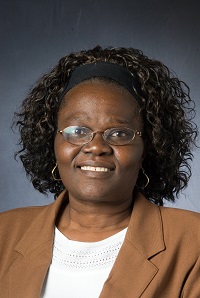UMES will engage local youth to work with Health Councils and implement action plans
to ensure all community members can be healthier at every stage of life.
Princess Anne, MD – (October 12, 2017) – The University of Maryland Eastern Shore (UMES) has been selected as one of five land-grant universities (LGUs) to partner with National 4-H Council (Council) and the Robert Wood Johnson Foundation (RWJF), the nation’s largest health philanthropy, to improve health in local communities over the next two years. UMES is among the many LGUs that will work on this partnership over the next ten years to build a culture of health in 1,000 communities across the nation.
To reach this goal, Council will use the $4.6 million grant awarded by RWJF to convene the unparalleled assets of the national Cooperative Extension System (CES), which includes UMES, to leverage 4-H’s proven youth leadership model. Youth will work alongside community members, local public health organizations, businesses, government entities, and non-profit agencies to address top public health priorities, such as individual and community well-being, prevention and treatment of chronic disease, and reductions in health care costs.
The ten-year partnership will begin with Council working with five LGUs including UMES, to identify innovator communities and communities in need where they will implement locally-responsive strategies. Each LGU will work in a minimum of three communities to develop an action plan and connect with at least 150 volunteers to mentor youth leaders to build local capacity and ensure successful implementation of the action plan. The four additional LGUs selected for the partnership include: South Dakota State University, University of Maryland Eastern Shore, University of Minnesota, University of Tennessee and Utah State University.

“It is an honor to be one of the five universities selected to initiate the Robert Wood Johnson Culture of Health Initiative in the U.S.,” said Dr. Virginie Zoumenou, professor of dietetics and nutrition, state extension nutrition specialist, and extension nutrition and health program leader at UMES. “The University of Maryland Eastern Shore is proud to be part of this Initiative for the next 10 years and is ready to partner with the entire community to reach the ultimate goal, which is to ensure that everyone in the community has the opportunity to make choices that lead to a healthy life.”
UMES was selected, in part, based on their preparedness to drive innovation for other communities and to implement the pilot projects at scale. An additional 56 LGUs will begin to lay the groundwork for expansion into further communities in the future.
The partnership will focus on three key elements to accomplish transformational change: (1) designing a sustainable network structure to promote health and well-being in communities across the nation; (2) creating and disseminating tools for healthier communities; and (3) launching a training curriculum for local community advocates. This approach will exponentially increase the impact and outcomes of the local Health Councils to drive impactful, sustainable changes.
Dr. Michelle Rodgers, Project Director and Associate Dean & Director of Cooperative Extension, University of Delaware, says one of the unique aspects of the CES approach is that one initiative can drive outcomes for both rural and urban communities. “This initiative taps into everything that the Cooperative Extension System has done well since we were formed over a century ago as the national education and community development program of the nation’s land-grant universities,” said Rodgers. “When we combine this with America’s philanthropy leader in health, it is amazing to envision the transformative impact we will have in communities throughout the country.”
Media Contacts:
Suzanne Street, Agricultural Communications Specialist
University of Maryland Extension
University of Maryland Eastern Shore
sstreet@umes.edu
410-651-6084
Cassie Reininger
National 4-H Council
creininger@fourhcouncil.edu
301-642-6979
About the University of Maryland Eastern Shore
The University of Maryland Eastern Shore, a research and doctoral degree-granting institution on the Eastern Shore of Maryland, is a historically black university and home to some 3,000 students. The 745-acre campus, which includes a 350-acre research and teaching farm, is nationally recognized for the beauty of its grounds. Its low student-to-faculty ratio, well-funded research programs, historic tradition of inclusiveness and constituent membership in the University System of Maryland combine to make UMES a strong engine of growth and development in its community, providing students with opportunities to learn from a well-balanced array of academic programs that respond to local needs as well as more global concerns.
University of Maryland Extension (UME) is a statewide, non-formal education system within the college of Agriculture and Natural Resources at the University of Maryland, College Park and the University of Maryland Eastern Shore. UME’s educational programs and problem-solving assistance are available to citizens and are based on the research and experience of land-grant universities such as the University of Maryland Eastern Shore and the University of Maryland, College Park.
About National 4-H Council
4‑H, the nation’s largest youth development organization, grows confident young people who are empowered for life today and prepared for career tomorrow. 4‑H programs empower nearly six million young people across the U.S. through experiences that develop critical life skills. 4‑H is the youth development program of our nation’s Cooperative Extension System and USDA, and serves every county and parish in the U.S. through a network of 110 public universities and more than 3000 local Extension offices. Globally, 4‑H collaborates with independent programs to empower one million youth in 50 countries. The research-backed 4‑H experience grows young people who are four times more likely to contribute to their communities; two times more likely to make healthier choices; two times more likely to be civically active; and two times more likely to participate in STEM programs.
Learn more about 4‑H at www.4‑H.org, find us on Facebook at WWW.FACEBOOK.COM/4‑H and on Twitter at HTTPS://TWITTER.COM/4H.

